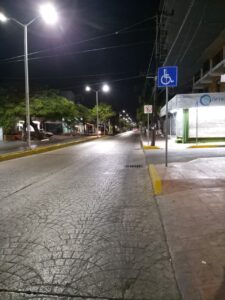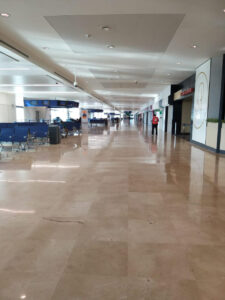Like every industry, business and human on the planet, the private investigation sector has been buffeted by the coronavirus storm. It’s been a trying time but also a time to develop new investigative strategies and use different technologies. From gathering information to making verifications, to simply communicating with each other, investigations have been forced to undergo a transformation from using teleconferencing to voice recognition tools, fraud analytics, and other Open Source tools.
Diligence has adjusted well to this new world. We’ve adapted our business practices and are working at full capacity. Working remotely, we have had an advantage of having key personnel in strategic domestic and international locations. Either by continuing in-person visits where able to, using digital communication and relying on our industry-specific software to securely get documents where they need to be. In short, investigations are moving forward.
At this time, we want to give you a glimpse into how things are proceeding. Same protocols, new approach.
This is a global issue
We asked our regional investigators to report on how the coronavirus was affecting their areas. The resounding response? Everywhere is affected. From India to the U.K. to Latin America to China, the coronavirus is impacting every country. As of April, areas like China and Vietnam are experiencing less disruption than places like Africa, Europe, and the U.S., where counts are still rising, and testing is a work in progress.
Most countries are imposing mandatory stay home initiatives, curfews, and other measures to reduce large gatherings. Organizations of all sizes and importance are closed. All but vital workers are working from home. Hospitals, police stations, and other government agencies are focused on the health care crisis and its impact on their personnel and systems. This has made our work more challenging.
With the majority of the global workforce relying on technology, our investigators are adapting like the rest of us. Although the people on the other end (medical records, healthcare personnel, police, etc.) are busy, we have had a positive response at minimum, doing verbal verifications and supplying support information as time permits. This is slower than our normal pace of business, however, it’s much faster than waiting for the backlog of information to be entered into the various database systems.
Our investigators also report that the documentation process has not changed for death certificates, birth registrations, and the like, it’s simply slowed. Critical interviews are conducted using interactive tools to observe physical responses, body language and to ensure proper identification. Investigators are learning to be flexible to keep our cases moving forward.
Light at the end of the tunnel
As the coronavirus curve begins to flatten, there are glimmers of hope. Many countries are beginning to re-open or plan to do so in the near future. Our investigators are monitoring these developments and adjusting their protocols appropriately while still following regional guidelines for safety.
Although this pandemic is forcing us to do things differently temporarily, Diligence’s standards and thoroughness are still in place. Our network of local investigators makes it possible to navigate this nebulous reality intelligently and with maximum effectiveness. We’re grateful for their diligence and commitment to doing great work even during a pandemic.
Please read below for some brief insights into how each region is handling the ever-evolving situation. And be on the lookout for a more detailed COVID-19 guide coming from Diligence soon.
Regional snapshots
As Diligence has a global reach, many of our cases originate in one country but need information from another; we are all connected. In addition to the safety and well-being of their citizens, all countries are taking extraordinary measures in the handling of COVID-19. Regardless of region, every nation is being very cautious with how they handle the remains of virus victims. Extreme care is taken with how the bodies are stored before burial/cremation. Many are indicating death-by-coronavirus on the death certificates.
Here’s a synopsis of the current state of affairs from each of our most-frequented regions:
Africa. The entire continent is on some sort of lockdown – partial or complete. Gabon has a curfew. Togo and Benin allow limited travel while countries like Tanzania remain completely open. The fraud alert remains high in most countries across Africa as we anticipate higher than usual health-related claims out of Africa. On the operation front, investigations have become more time consuming, but our investigators are using every available resource to get the needed information. As noted, most African countries have had a lower incidence of the virus than other regions of the world and we continue to operate as usual.
China. Although the coronavirus originated in China, the country is emerging from the crisis. Their lockdown is lifting, and travel restrictions are easing. Masks are mandatory, but businesses are opening, including registry offices and other government agencies that provide verification services. Our investigators are able to do on-site visits again. And we are already starting to receive multiple deaths from Wuhan Province as an apparent result from the Coronavirus.
Europe. Europe is following quarantine protocols and imposing travel restrictions. Switzerland has issued its first mandatory curfew since World War II. All government and public services agencies are closed, including the IRS. They’re scheduled to start re-opening in mid-May. While in-person inquiries are limited across the continent, multiple countries are easing restrictions and our investigators are using various databases, technologies, email and telephonic inquiries to get the job done.
India. As of the beginning of April, India was seeing an increase in confirmed cases and related deaths. Central and state governments are coordinating to implement lockdowns and smooth supply transfers. Travel is restricted and in-person meetings canceled. All government offices except for those providing essential services, are closed. Some states permit online verification for death certificates. Hospitals are required to report COVID-19 related deaths to authorities which allows cremation/burial to follow appropriate guidelines.
Latin America and Central America. Countries across the region are also imposing quarantines, restricted travel measures, curfews, and suspension of all non-essential gatherings. As of March 18th, Latin America had 49,785 confirmed coronavirus cases. Registry offices are prioritizing death and birth recordings, working only with essential staff, which has impacted the verification of other legal types of cases. Hospitals and funeral homes are facing an increase caseload and only attending high priority requests. However, even with strict regulations in place, we have not faced significant delays that cannot be overcome by using our local team with exceptional contacts throughout the region.
Mexico. Mexico’s reported COVID-19 cases were at 5,000+ in early April. The numbers are increasing but not at an alarming rate according to our team. Travel restrictions are in place and the country is under lockdown. Registries are closed except for death and birth recordings and response times have slowed significantly for other legal research. There has been no change in the death certificate issuance process. Investigations are proceeding as allowed in each region. While the registries may be limited in communication, in many cases, funeral homes continue to be responsive and valuable resources for investigative information.


Empty streets in Mexico Empty Airport in Mexico
Philippines. The country remains in a complete lockdown. The President has threatened to have the police shoot people not obeying the lockdown, and travel from province to province is prohibited. Our investigators continue to use the best practices and their reliable resources to do what is possible to complete the due diligence.
United Kingdom. The U.K. has been in lockdown since March 23rd. No changes to issuing death certificates have occurred. The verifying physician process remains the same. Investigations are proceeding through various available channels.
Vietnam and Southeast Asia. As of early April, Vietnam had no reported coronavirus-related deaths. They are under lockdown and are implementing strict travel restrictions to keep the number of cases as low as possible. Medical record verifications are at the discretion of the hospitals and medical registries, which have been issued via email and mail. This varies by case and is subject to privacy restrictions. We have been successful in continuing our investigations throughout the region in spite of the closures in some of these countries.
A reminder from Diligence
While the world comes together to counter this issue, this is not the time to let your guard down. Never doubt that fraudsters are watching and waiting for the right opportunity to exploit your company’s goodwill. As we all do our best to ease the stress derived from this situation, the pandemic presents the perfect moment for the fraudster to strike. Proper due diligence can never be replaced.
As always, we thank you for your continued trust and partnership as we navigate and weather this storm together. At Diligence, we thrive on challenging investigations and know that where there is chaos, there are always opportunities.

